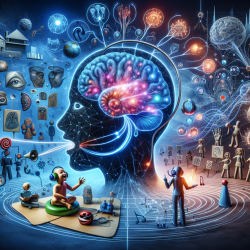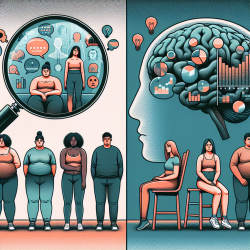Understanding the Interplay Between Emotion and Cognition in Autism
As a Special Education Director, you are constantly seeking ways to enhance the educational experience of students with Autism Spectrum Disorder (ASD). A recent study, "The Interplay between Emotion and Cognition in Autism Spectrum Disorder: Implications for Developmental Theory," offers valuable insights into the emotional and cognitive challenges faced by individuals with ASD.
Key Findings from the Study
The research highlights that individuals with ASD often struggle with recognizing and interpreting emotional expressions, which can affect their social interactions. This is linked to anomalies in the social brain network, impacting processes such as empathy and mental state understanding. The study suggests that these challenges are not just limited to social contexts but are part of a broader disruption in how emotions influence cognitive processes.
Practical Applications for Practitioners
Understanding these findings can help practitioners tailor their approaches to better support students with ASD. Here are some practical applications:
- Enhanced Emotional Recognition Training: Implement programs that focus on improving the recognition of facial expressions and emotional cues. This can help students better navigate social interactions.
- Emotion-Cognition Integration: Develop strategies that integrate emotional understanding with cognitive tasks. For instance, using stories or scenarios that require students to identify emotions and predict outcomes can strengthen this integration.
- Individualized Support Plans: Recognize that each student with ASD is unique. Tailor interventions to address specific emotional and cognitive needs, ensuring that support plans are flexible and adaptive.
Encouraging Further Research
While the study provides a solid foundation, it also opens the door for further research. Practitioners are encouraged to explore additional studies and collaborate with researchers to develop innovative approaches that can be tested and refined in educational settings.
Conclusion
By understanding the intricate relationship between emotion and cognition in ASD, practitioners can enhance their skills and provide more effective support to students. This not only improves educational outcomes but also enriches the overall learning experience for students with ASD.
To read the original research paper, please follow this link: The Interplay between Emotion and Cognition in Autism Spectrum Disorder: Implications for Developmental Theory.










